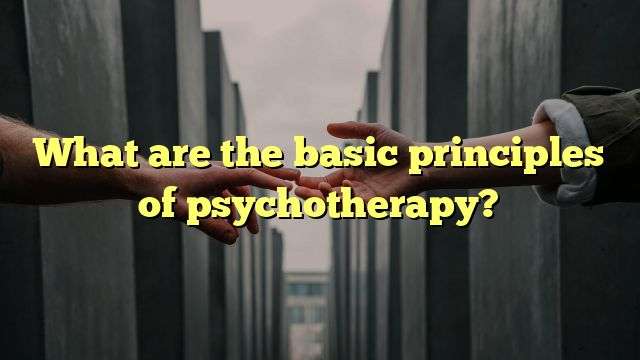Understanding the Basic Principles of Psychotherapy
Psychotherapy is a form of mental health treatment that focuses on helping individuals understand and cope with a variety of mental and emotional issues. It is based on the idea that what we think, feel, and do has a direct impact on how we live our lives. Psychotherapy is designed to help people gain insight into their thoughts and behavior, and develop healthier ways of thinking and behaving.
The Benefits of Psychotherapy
Psychotherapy has many benefits, including reducing or eliminating symptoms of mental health issues, helping individuals gain insight into their thoughts and behavior, improving communication and relationships, and helping people develop healthier ways of thinking and behaving. It can also help people to better understand themselves and their emotions, as well as increase their self-esteem and self-confidence.
The Components of Psychotherapy
Psychotherapy is composed of several different components, which all work together in order to help individuals achieve their goals. These components include:
- Therapeutic Relationship: Establishing a trusting, collaborative relationship between the therapist and the patient is essential in order for psychotherapy to be successful. The therapist should strive to create a warm and supportive environment, where the patient feels safe and comfortable. Additionally, the therapist should strive to be authentic and genuine in his or her interactions with the patient, and should develop an understanding of the patient’s individual needs, perspectives, and experiences.
- Active Listening: Active listening is a central component of psychotherapy. The therapist should strive to listen carefully to the patient, and should strive to understand what the patient is saying from his or her perspective. This includes not only listening to the words that are spoken, but also paying attention to body language, tone of voice, and other non-verbal cues.
- Psychoeducation: Psychoeducation is the process of educating the patient about his or her mental health condition and the various treatments available. This includes providing information about the condition, its symptoms, and the various treatment options. Psychoeducation can help the patient to understand his or her condition better, and can help to reduce stigma and shame associated with the condition.
- Cognitive Behavioral Therapy (CBT): CBT is a form of psychotherapy that focuses on identifying and changing unhelpful or destructive thought patterns and behaviors. In CBT, the therapist works with the patient to identify and challenge unhelpful or distorted thoughts, and to develop new and healthier ways of thinking and behaving. CBT can be used to treat a variety of mental health issues, including depression, anxiety, and stress.
- Interpersonal Therapy (IPT): IPT is a form of psychotherapy that focuses on resolving interpersonal conflicts and improving communication and relationships. In IPT, the therapist works with the patient to explore the individual’s relationships and communication patterns, and to identify and address any issues that may be causing distress. IPT can be used to treat a variety of mental health issues, such as depression, anxiety, and relationship issues.
The Goals of Psychotherapy
The ultimate goal of psychotherapy is to help individuals achieve psychological well-being. This may involve helping the individual to reduce or eliminate symptoms of mental health issues, to better understand themselves and their emotions, to improve communication and relationships, and to develop healthier ways of thinking and behaving. Additionally, psychotherapy can help individuals to develop better coping skills, to make positive lifestyle changes, and to increase their self-esteem and self-confidence.
Conclusion
Psychotherapy is a form of mental health treatment that can help individuals understand and cope with a variety of mental and emotional issues. It is composed of several different components, including the therapeutic relationship, active listening, psychoeducation, cognitive behavioral therapy (CBT), and interpersonal therapy (IPT). The ultimate goal of psychotherapy is to help individuals achieve psychological well-being, which may involve reducing or eliminating symptoms of mental health issues, improving communication and relationships, and increasing self-esteem and self-confidence.



